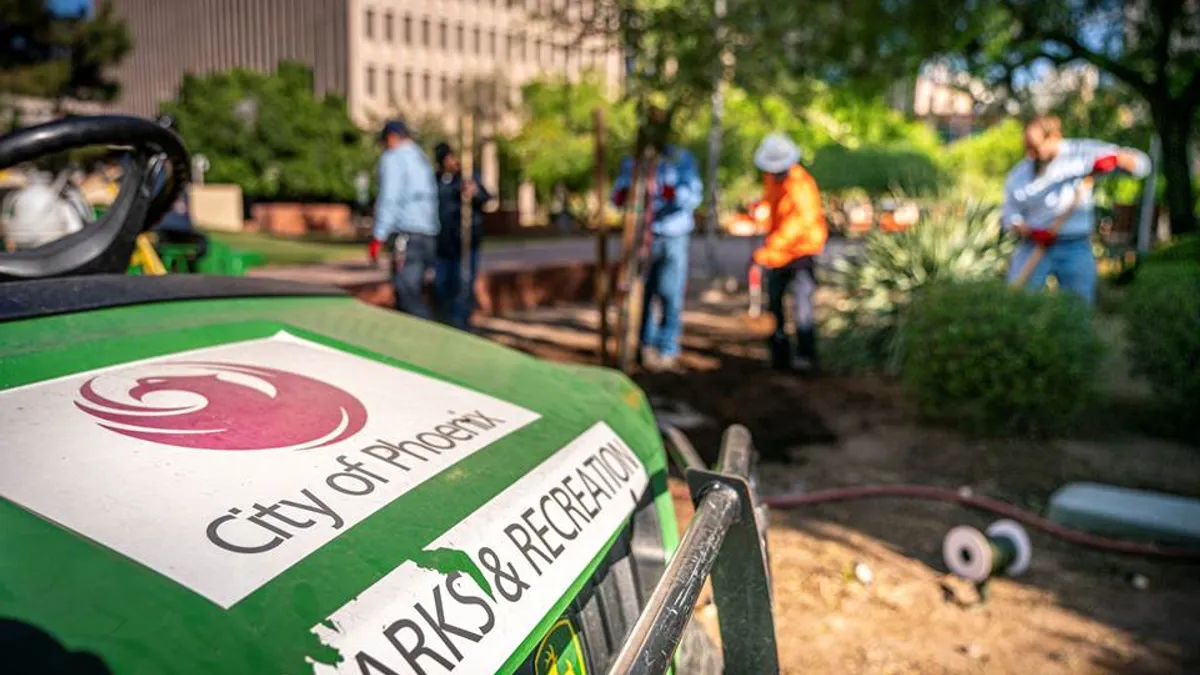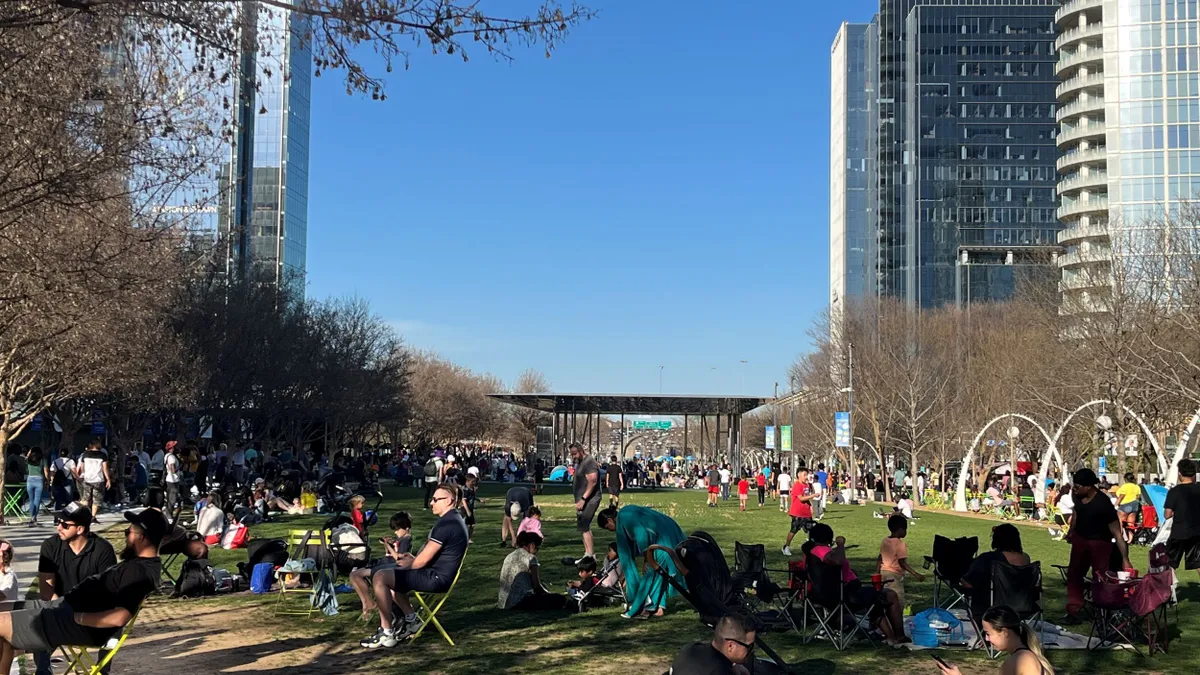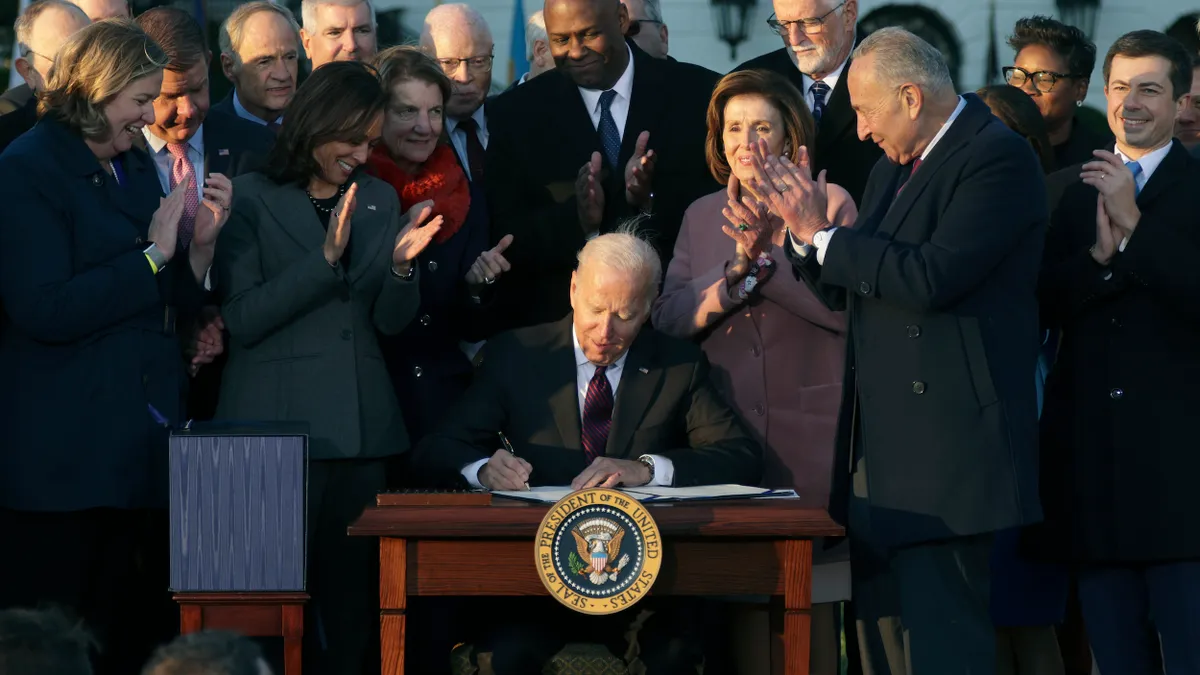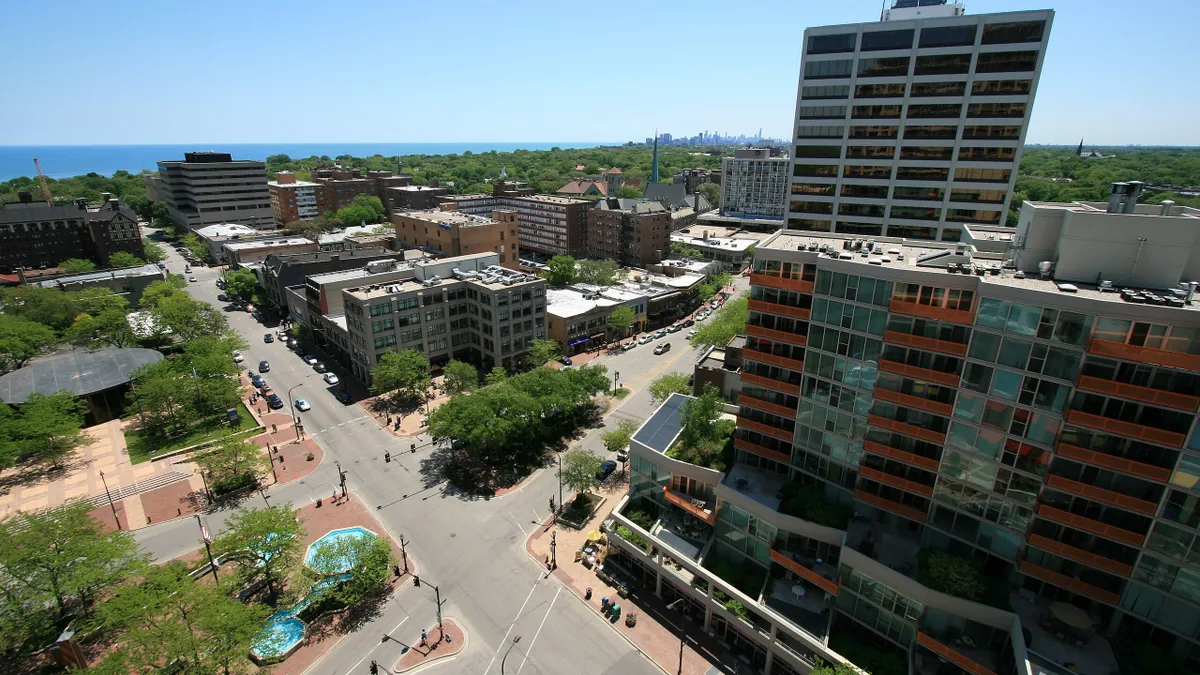Around the globe, leaders are increasingly recognizing the detriments of extreme heat as a serious climate hazard. The mayor of Seville, Spain, this week announced plans to name and categorize heat waves, similiar to the naming conventions used for hurricanes and tropical storms. Freetown, Sierra Leone, also announced this week that it would be the first African city to appoint a chief heat officer, following a number of other global cities that have made similar appointments.
In the United States, Phoenix is among the hottest cities in the nation. By October last year, the Arizona capital city had matched its record of most triple-digit-degrees days in a calendar year: 143. To help mitigate the impact the heat has had on the health and quality of life of its residents, the city government this month launched an Office of Heat Response & Mitigation. City officials tapped David Hondula, a climate and health scientist who most recently served as a professor at Arizona State University, to lead the office. ASU has partnered with the city on heat mitigation efforts, and has been an instrumental partner in the city's efforts on heat, including in piloting cool pavements and in researching urban heat island inequities.
Hondula took the helm this month and spoke with Smart Cities Dive a little more than a week into the new position.
This interview has been edited for brevity and clarity.
SMART CITIES DIVE: Do you foresee other cities adding this type of position, or developing other positions depending on whatever particular extreme weather or climate change impact they face?
DAVID HONDULA: With respect to heat in particular, I suspect there will be some rippling effects from the announcement of the Miami office, the announcement of the Athens, [Greece] office... Between those announcements and also the Phoenix office, I suspect we'll see some other motivated cities give it a try. But of course, we don't know how effective these offices and people will be because it's never been tried before. And we also know that not all cities have resources to be able to do something like this. I think most most small governments, small cities and towns across the U.S., are probably not in a position right now to be able to do this. So I think we'll see a few to start, but I would be surprised if there's a tidal wave of new heat-focused positions.
I think what we might see more of is clarification — and this is something that we've been arguing for academically for some time — at all levels of the government about who has which responsibilities related to heat.
We feel like we've seen and talked about and observed and heard people directly talk about it in public meetings, and stakeholder meetings and so on. I think responsibility for heat is shared and ambiguous in most city governments right now, and I think that was true to some extent in Phoenix. We had terrific leadership on heat from the sustainability office, with support from other programs. But that was largely thanks to individual leadership and visioning, and if we think heat is an important hazard to manage, I think a more institutionalized approach to accountability and responsibility would be important.
I don't know if it's fair to say that heat stands alone, but I think heat has been somewhat distinctive in that it doesn't well fit into existing management structures, whereas many other hazards [do]. For example, I think management of flooding, stormwater management, more often has a clearly defined owner in city government or county government. Here there's a flood control district that's responsible for stormwater management. Air pollution: the federal regulatory environment means that jurisdictions all across the country have departments or offices focusing on that hazard.
Now, more complex long-term challenges like droughts, sea level rise, heat: how those are managed, I think that's starting to get a little muddier. But we've been trying to make the case that heat isn't clearly just an emergency management problem, it's not just a human services and homelessness problem, it's not just an infrastructure problem — it's awkward for any one of those units to try to hold it and manage it. And I don't think there's been a person in city government, at least not here in Phoenix, who has actually had responsibility for ensuring that we do better in heat management.
Sometimes my colleagues and I wonder if right now the United States is at a turning point for heat management, where we were 50 years ago for air quality management before the passage of the Clean Air Act, or decades ago for flood management with various institutions and approaches.
I know you're saying heat hasn't fallen cleanly into any one city office or position or piece of federal legislation. What do you feel is achievable at the city level, and what things that could move the needle on heat just have to happen at the regional, state and national levels?
I'm actually quite optimistic about what can be accomplished at the city level. We've directed a lot of our heat work from the academic community at, and conducted in partnership with, cities because we think they really hold a lot of responsibility in this space and a lot of opportunity. When we think about managing the local and regional climate, and the difference between thinking about global-scale climate change versus locally driven climate change... as we have seen, coordinating global policy toward emissions reductions is very difficult — to understate the nature of the problem.
So cities, for instance, individually don't have their hands on the thermostat for global climate management, but they absolutely have their hands on the dial for local climate management. It's land-use change that's been the dominant driver of temperature change in most American cities over the past 50, 60, 70, 80, 100 years, depending on where we are. And that land-use change is driven by the decisions that are made in City Hall for planning and development, permitting, zoning, etc. So from that standpoint, the influence over the local climate that's been so important in recent years I think does rest with city government.
In the smart cities space, some people think that smart means high-tech solutions, whereas some people think that less flashy, more basic solutions make the difference. When it comes to heat response, what do you expect the breakdown might be?
I think the starting point for our conversation is: there's a strong belief in the public health community that all heat-related deaths are preventable, and probably most heat-related illnesses as well. So when you talk about what might be achievable, in the long run that is our guiding beacon: to try to eliminate heat-related deaths and illnesses. And there's a lot of work to do there, some of which is heat-related, some of which is only tangentially heat-related, whether providing basic social service, food, water, shelter, drug and alcohol rehabilitation services, career training, literacy programs — those are all really important for reducing heat-related problems and problems related to other environmental hazards as well.
A lot of the tools and strategies we need to get in the way of these heat-related deaths are not particularly high-tech or elaborate. We're talking about having water where people need it, in time; providing shade where people need it, in time; ensuring that they can use public transportation to get to their appointment for drug and alcohol rehabilitation services, in a timely manner, frequently at low or no cost. We can do all of these tomorrow if we have people working on the problem and thinking about it, and trying to optimize how we are delivering those services. And that's where I think there's an exciting role to think about cities.
I think for our office, at least in the immediate future, operating as a smarter city means really being strategic about where we are deploying cooling centers. Where are we sending volunteers in the summer to distribute resources? What are the metrics that we're using to benchmark our progress?
I think the "smart" is what guides our lower-tech, very tangible implementation in the community. I think there are some exciting higher-tech options; maybe we'll call them "mid-tech" options.
We have been thinking, for example, about why we have homes that are so hot that people are dying and nobody knows about it. It is the law that that cannot happen for fires; buildings have smoke detectors because we want to know when there's a fire in there to get people out and to get the fire department there for homes that are connected to those types of services.
The technology to do so for heat already exists. There are tens of thousands of people that have smart thermostats and there are many, many, many more homes that are WiFi-connected that could have a temperature sensor that streams to the cloud and sends some alerts to a friend, family member, neighbor, or emergency service provider when it is too hot inside that home.
We don't need a brand-new invention; we need to make current technology available to the people who need it. There are plenty of interesting questions about how to do that and be sure it works, and about liability and ethics. And we absolutely agree that we're not necessarily ready to roll something like that out tomorrow. But I think we can do it, and hopefully the investment in his office means that we'll have people who can really focus on exploring that avenue and other avenues and figure out how to how to test it, how to implement it, and how to pay for it, which feels very smart-city-aligned.




















